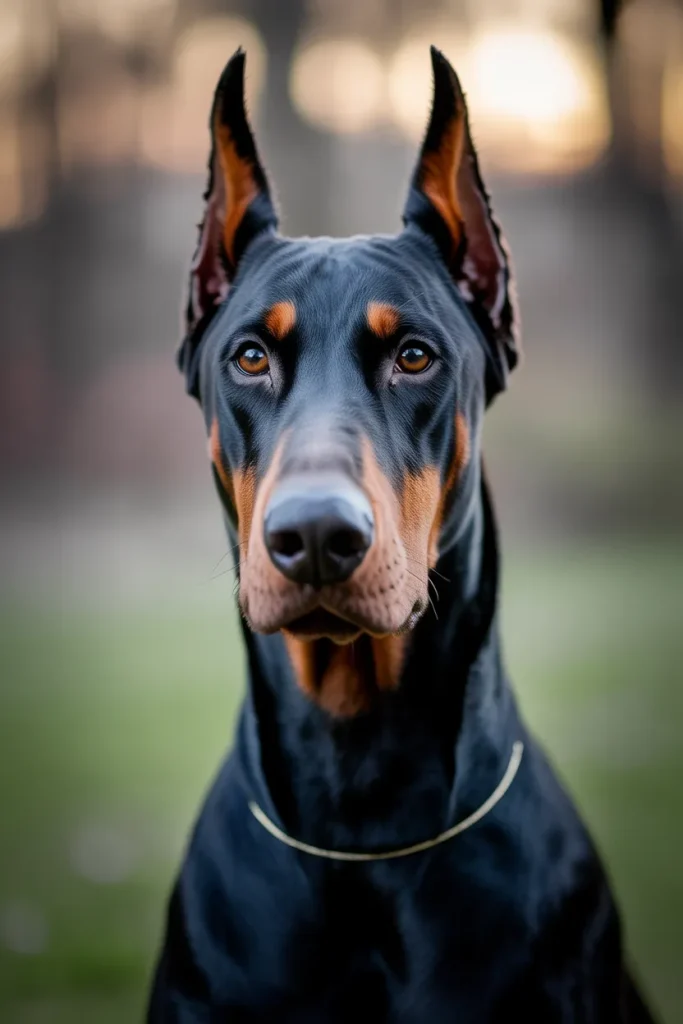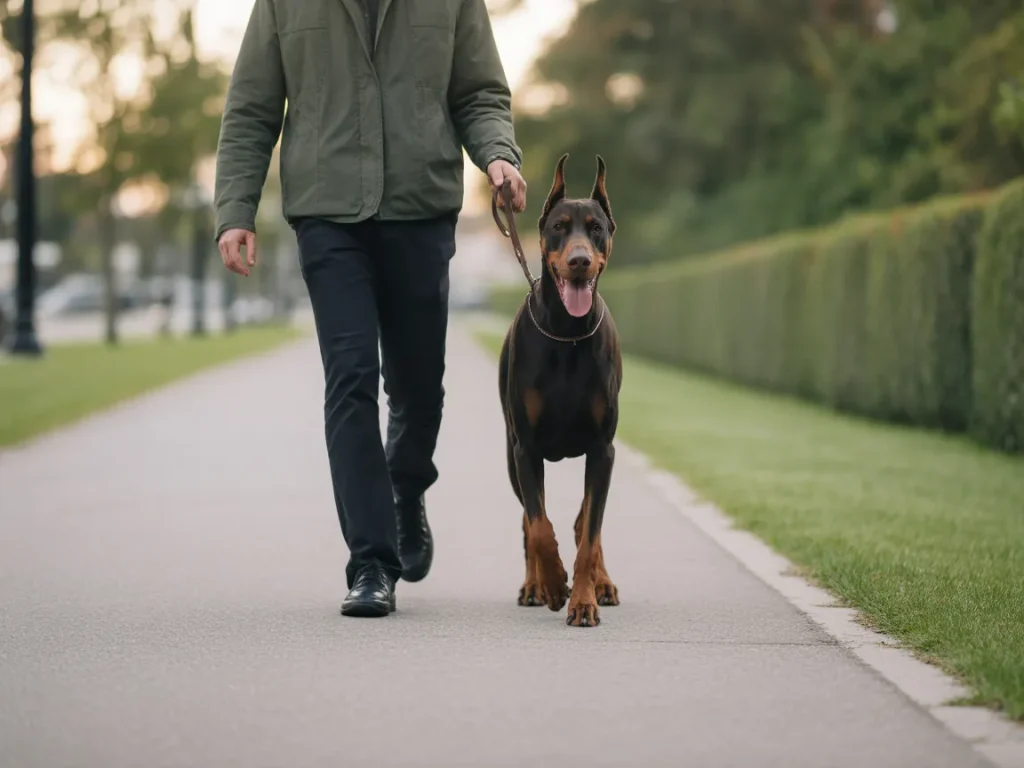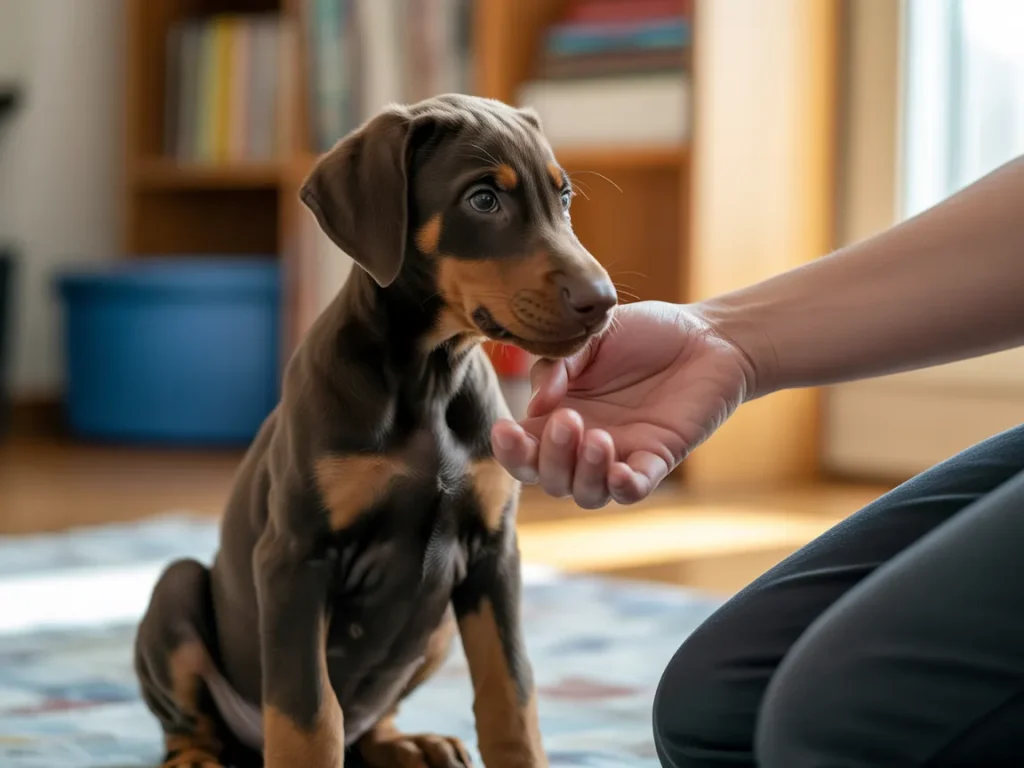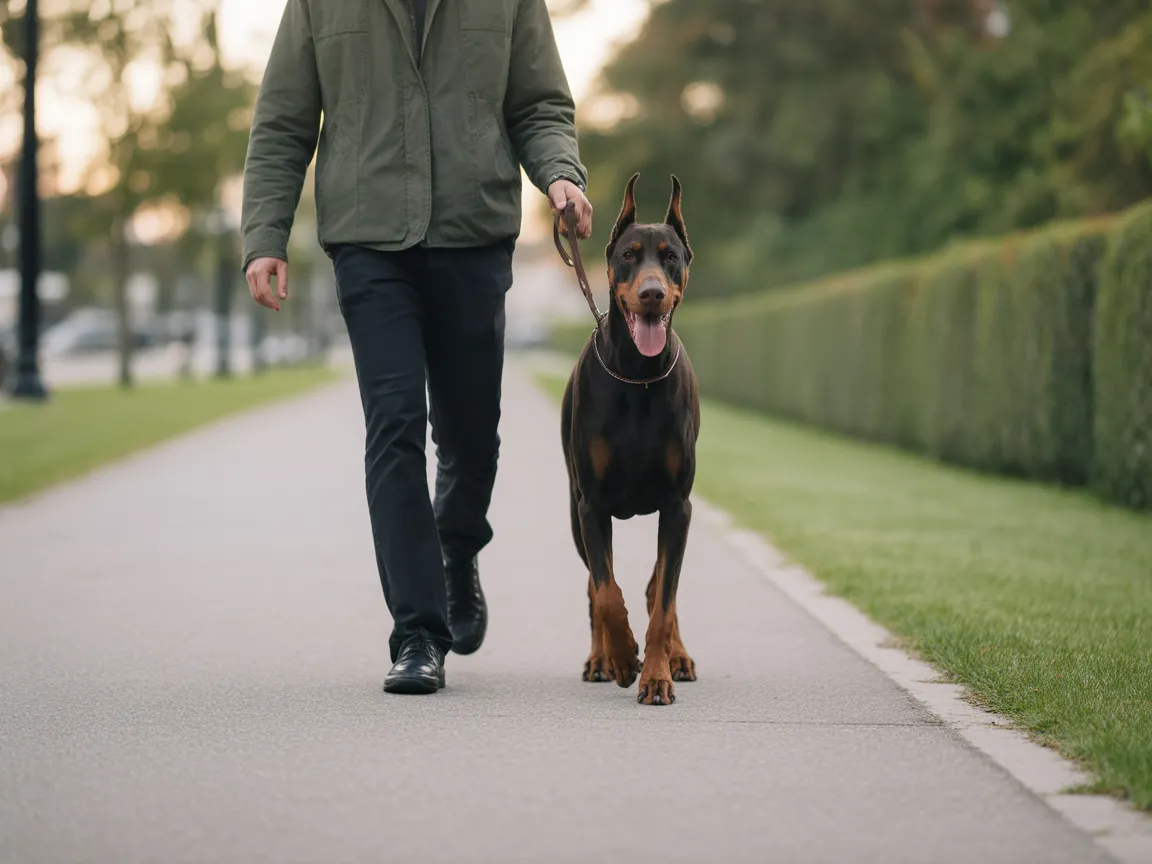Doberman Deep Dive: Intelligence, Strength & Daily Life
The Doberman pinscher is one of the most intentionally crafted dog breeds in history — designed not to chase birds or herd sheep, but to act as a human partner. Sleek, athletic, and almost eerily perceptive, the Doberman often gets mislabeled as a “military-only” dog. In truth, this is an emotional, people-driven breed with a surprisingly tender core. If you’ve ever wondered what life with a Doberman is really like — beyond the dramatic silhouette — this deep dive covers temperament, lifestyle, training, family life, and more.

A Brief Origin: Designed for Human Partnership
Most dog breeds evolved from practical jobs like pulling carts or guarding livestock. The Doberman didn’t. In the late 1800s, a German tax collector named Karl Friedrich Louis Dobermann wanted a dog engineered specifically to protect him — intelligent enough to read danger, yet obedient enough to stop the moment he said so. That origin still defines the breed today. A true Doberman isn’t just a guard dog — it’s a strategic partner, wired to read people and stay in sync with its person.
According to the American Kennel Club, the Doberman is consistently ranked among the top working breeds for intelligence, loyalty, and trainability.
Doberman Temperament: Sensitive, Loyal, and Sharply Aware
People call them “velcro dogs,” but not because they’re needy — it’s because they’re tuned in. A Doberman reads your hands, your breathing, even your mood before you feel it yourself. This is a dog that doesn’t exist in the background of your life — it wants to participate in every decision, every step, every room. Yes, they are protective, but a well-bred Doberman doesn’t react recklessly. It calculates.

PetMD describes the Doberman as highly sensitive to human mood — often responding to subtle emotional shifts before words are spoken.
Intelligence and Trainability: A Fast Thinker, Not a Blind Follower
Dobermans don’t just follow commands — they interpret them. They recognize patterns fast, and they’ll often act before you speak. That’s why they thrive in obedience work, agility, protection sports, search and rescue, and even scent detection. But they need owners who are calm and consistent. They struggle with unstable energy or constantly changing rules. Mental clarity matters more to them than endless miles of running.
How Dobermans Learn Best
• They respond to structure and purpose — not chaotic play
• They excel with marker training, patterns, and boundary-based games
• They shut down with harsh emotion or unpredictable leadership
Train them right, and a Doberman becomes almost an extension of your nervous system — responsive, thoughtful, and incredibly reliable.
Daily Life With a Doberman: More Mental Than Physical
Many people assume Dobermans need relentless physical exercise, but what they truly crave is structured activity. A physically tired Doberman isn’t always a fulfilled one — but a mentally challenged Doberman almost always is. Their ideal day includes long, intentional walks, focused obedience games, pattern-based fetch, scent puzzles, or even learning household routines. They’re indoor dogs at heart. What they want most isn’t a big yard — it’s closeness.

Doberman Puppies: Early Signs of Brilliance and Willpower
A Doberman puppy is not a blank canvas — they show up already observing, already thinking, and already testing the rules.
Here’s what to expect from a young pinscher:
• They pick up structure lightning fast — walking nicely, waiting calmly, settling indoors
• If you delay rules, they’ll make their own (and you probably won’t like them)
• Early exposure to people, noises, neutral dogs, and real-world environments is non-negotiable
A Doberman puppy doesn’t want to run the house — but they will if you don’t. They aren’t wired for independence. They’re wired to follow confident, calm leadership. The moment that leadership is missing — they step in.

Are Dobermans Good Family Dogs?
In the right home? Absolutely — they’re one of the most emotionally devoted breeds you can live with. Dobermans tend to pick a “primary person,” but they’re loving and attentive to the whole family. What they are not is background decoration. They expect presence, interaction, and emotional awareness.
They can be fantastic with respectful children — but not in homes full of screaming chaos or unpredictable energy. Structure matters.
Ideal Homes for a Doberman
• Active households — but with routine, not randomness
• People who want daily partnership, not a part-time pet
• Owners who appreciate emotional intelligence over “easy chill dog” energy
A Doberman doesn’t just live with you — it studies you. If you want a dog who behaves like a thinking teammate rather than a passive accessory, you’ll probably fall in love with this breed.
Health, Grooming, and Longevity
Dobermans are refreshingly low-maintenance when it comes to grooming. Their short coat sheds lightly and usually needs no more than a weekly brush or wipe-down — think “easy elegance,” like a well-fitted suit that never wrinkles. But while their coat is simple, their health care should be taken seriously.
This breed is genetically prone to serious issues like dilated cardiomyopathy (a heart condition) and gastric torsion (bloat).
Veterinary research from VCA Hospitals notes that Dobermans are among the most genetically predisposed breeds to dilated cardiomyopathy.
That’s why early health screening, responsible breeding, and preventative routines matter far more than fancy shampoos. The average lifespan is 9–12 years — though well-bred, well-cared-for Dobermans can go beyond that.

Should You Choose a Doberman?
A Doberman is not a passive addition to your home — it is an intentional presence. It doesn’t just “exist beside you,” it partners with you. If you’re looking for a dog that quietly sleeps in the corner and entertains itself for hours, this is not the breed. But if you want a dog that syncs with your energy, matches your rhythm, and is ready to step into purpose with you — few breeds come close.
The ideal Doberman owner is someone who:
• Wants emotional and working partnership — not a decorative pet
• Enjoys calm structure and clear, consistent leadership
• Builds life with their dog, not around their dog

Final Thoughts
A Doberman isn’t just strong — it’s intentional. Not just smart — but emotionally reading the room at all times. For someone willing to lead with fairness, clarity, and commitment, this breed offers unmatched loyalty and communication.
Living with a Doberman isn’t simply owning a pet. It’s entering a two-way partnership — one built on trust, purpose, and presence. And for the right person, there truly is nothing else like it.


